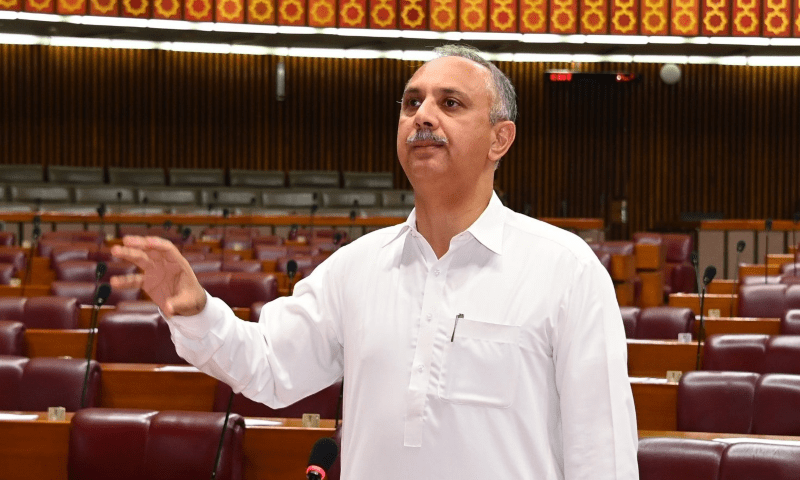• Tarrar accuses PTI of “kidnapping its own members.” ISLAMABAD: Leaders of PTI and JUI-F say lawmakers and their families are being intimidated by authorities and offered exorbitant sums to vote in favor of the amendment. • Qaiser questions the need for forceful actions when the parliamentary panel is making progress toward consensus. Individuals from resistance groups in the two places of parliament on Thursday censured the supposed badgering of their legislators, with the PTI guaranteeing that its individuals were being presented to Rs3 billion for their help to an administration proposed dubious revision bill, pointed toward carrying exceptional changes to the country’s legal framework.
In advance of the government’s plan to pass a constitutional amendment bill, which is currently being reviewed by a special parliamentary committee, PTI lawmakers described incidents in which they and their families were intimidated by police and intelligence officials.
NA Opposition Leader Omar Ayub Khan alleged that several PTI members and their families were being intimidated and implicated in fabricated cases to get their support for the bill, opening a formal debate on the “need for constitutional reforms” proposed by Syed Naveed Qamar of the PPP.
He cited PTI MNA Junaid Akbar Khan, who claimed he had been offered Rs1 billion in exchange for his vote, as saying, “Put up signs of ‘democracy for sale’ or ‘loot sale’ outside [parliament].” Members, according to Mr. Ayub, were offered payment in any currency of their choice.
Joining the discussion, PTI’s Asad Qaiser guaranteed that individuals were being offered pay-offs going from Rs1bn to Rs3bn.
Mr. Qaiser pleaded with the government to release the seven PTI members who had been “abducted” and end the “ongoing crackdown” against opposition members. He claimed that the government was attempting to implement the “gunpoint” amendment at a time when things were not going well in Balochistan and Khyber Pakhtunkhwa.
He inquired as to why the government was pressuring lawmakers when a special committee was attempting to reach an agreement on the proposed amendment. He stated that such actions were casting doubt on the people’s belief that there was some other “motive” behind the move.
He demanded that “the environment should be made conducive” and that “institutions should not interfere.”



